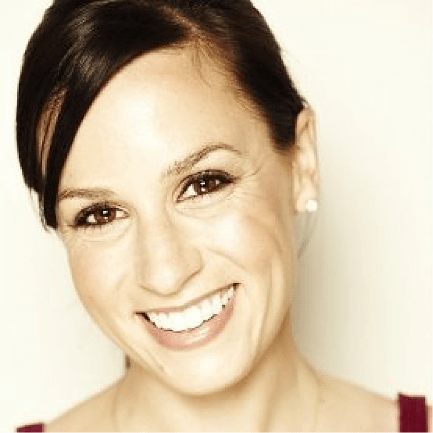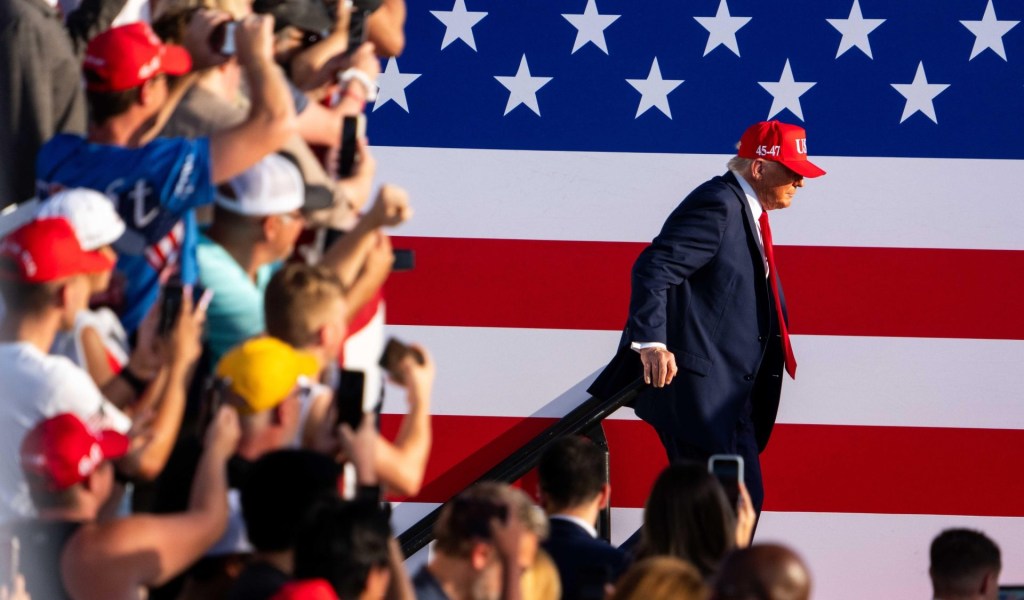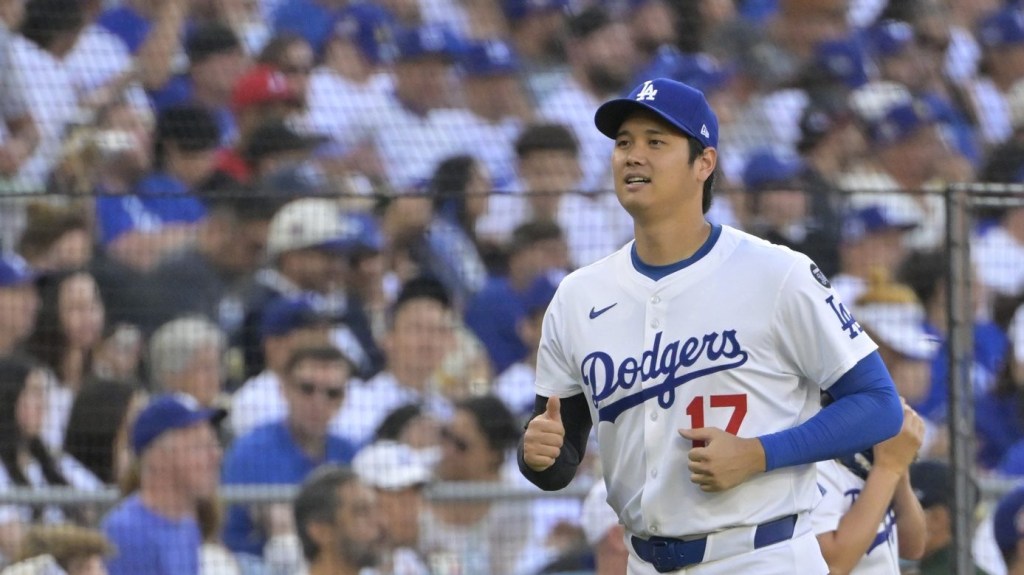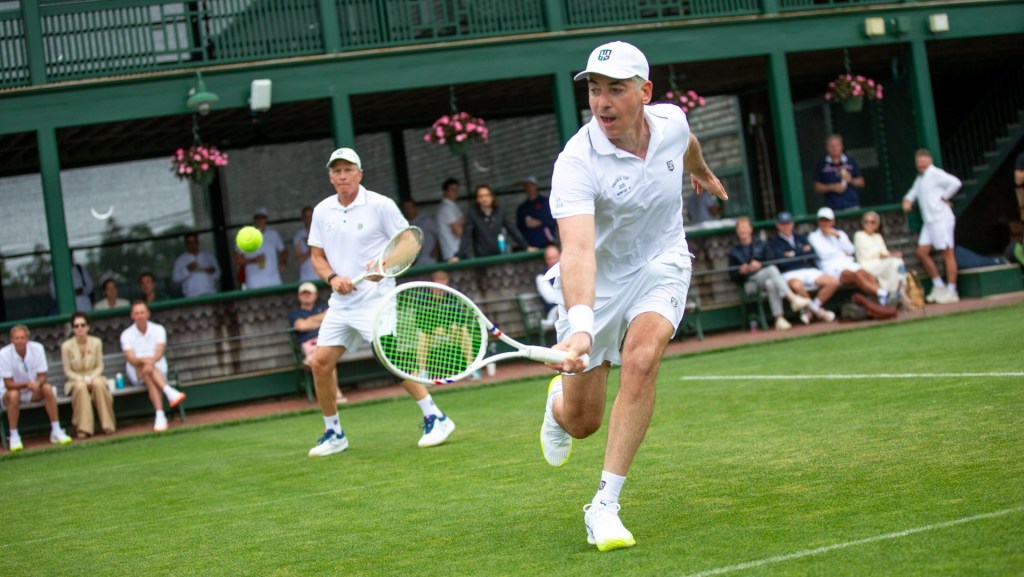By: Amari Dryden, @Amari_Dryden

Front Office Sports is proud to have sat down with Heather Collart, the Senior Director for Community Relations and Executive Director of the Come Together Foundation at Palace Sports & Entertainment. After working in the athletic department at her alma mater Pepperdine University for twelve years, she transitioned into the professional sport industry when she took a community relations position with the Detroit Pistons. She was gracious enough to offer up her wisdom about the importance of community relations, differences between collegiate and professional athletics and how loving sports is a bonus not a prerequisite for a job in the industry.
What has your journey been like going from a graduate of Pepperdine University to now being the Senior Director for Community Relations at Palace Sports & Entertainment?
I started this journey when I was eighteen and a student at Pepperdine University and now I’m thirty-four. I’ve grown-up through this journey so that’s a unique part of my career. Not only learning about the industry itself but learning a lot about myself more specifically.
As far as my personal growth, I’ve learned a lot about how other people work. I grew up in a very small town and I think in that regard I wasn’t exposed to how many different types of people there are in the world. Spending so much time in southern California and now in Detroit, I think I’ve learned a lot more about the diversity of people, leadership styles, and management styles.
At the end of the day I’ve also learned how the industry at large has changed with the explosion of social media, the importance of having a digital presence and the importance of marketing and its corresponding disciplines. I wholeheartedly believe these departments are the linchpins to business, especially in sports. Everything rides on the back of marketing, in my opinion.
What inspired you to work in the sport industry?
I went to Pepperdine for undergrad and knew I needed to get a student job while I was on campus to have some spending money. I was looking through a book in Pepperdine’s student employment office. There were a lot of front office assistant and teacher’s assistant positions and I flipped across one that for the front office assistant position in the athletic department.
At that point in time I don’t think I fully grasped the amount of employment opportunities there were in the sports industry. I think it was more a thought of, ‘if I’m going to be answering the phones or typing a spreadsheet, I might as well want to be doing that for something I’m passionate about.’ It was an amazing happenstance that I happened to see that job posting, get that job and then have my foot in the door and be able to work my way up to where I am now.
The inspiration stemmed from a true love and appreciation for sports but the inspiration came from me knowing I could take my passion and interest in the industry and focus it around things I was good at. I was somebody who always loved watching and being around sports but frankly could never actually play very well. I was inspired by the fact there was a whole industry behind the coaching and playing and I was able to take my strengths and turn them into a career in an industry I love and feel good about. Through hard work and inspiration from leaders in the industry, I’ve been able to work my way upward.
What are some challenges you face in your job?
I don’t mean this to sound like there’s a bunch of naysayers or negative energy toward my department but overall sometimes community relations isn’t valued or utilized the way it should or could be. Often times it’s not seen as a revenue generating part of our business rather it’s the “right thing to do” from a community standpoint. From a time and energy focus, it can take a backseat to other priorities. On a daily basis I challenge myself and am challenged to make sure I work to show the value and revenue generating potential of my department each and every day.
A lot of other teams along with ours have proven time and again that with the right resources and emphasis, you can truly create lifelong fans through community engagement. You can also generate revenue through community engagement. While sometimes it’s not a straight line to revenue, it’s one of those areas I continually have to explain or reemphasize to people to make sure everyone in our company knows and values what we do and understands how it betters our business as a whole.
What is your favorite part of your job?
Aside from stopping and remembering on a day-to-day basis that I work for an NBA team which is pretty darn cool, my favorite part is when I can stop whether it be at a game or an event and truly know in my heart we’ve made a positive impact in someone’s life.
This past season we created a surprise ‘Piston for a Day’ holiday experience. It was for fourteen teenage foster kids. We did a mock press conference for these kids to talk about their experience and one of these kids who probably has had slim to nothing his whole life got up to the microphone and said, ‘I really appreciate what you’ve done for me today. You’ve really brought my hopes up. Merry Christmas.’
I don’t think there was a dry eye in the house when he said that because here’s this teenage kid who basically has been bouncing around from foster home to group home his entire life and the fact that the opportunity we could provide him for one afternoon brought his hopes up to the point where he’s wishing all of us a Merry Christmas just floored everybody.
That’s one of those things that will always stick with me because as much as maybe it was just an escape from his normal day-to-day, I know we gave him hope and created a really cool day for somebody who clearly deserved it.
What is one of the most memorable community events you have been a part of in your job with the Pistons?
We have an annual Black History Month scholarship event where high school seniors compete through any artistic medium they want. They compete for higher education scholarships. Every season I’ve been a part of it, I leave the event completely blown away by the creativity, passion and intellectual level that these high school seniors bring. Its original dance, music, song, speech, poetry and roleplaying.
It not only reinforces that there are good people in the world, but also reinforces the fact that there are good kids out there who want to make a positive change and better their community and themselves and see education as a way to do that. It’s an event I hope the Pistons continue long after I’m gone. It’s awe-inspiring to see what these kids come up with.
Since you worked both in collegiate athletics and in the NBA, what are some differences between the two industries?
Both industries in their own way want to do well financially. I think at the collegiate level at least Pepperdine, most of the student-athletes know they aren’t going to play sports professionally so there’s a tremendous emphasis on growing the student-athlete as an individual and preparing them for life after sport. I found that really rewarding to be able to engage with student-athletes in that way in more of a mentoring level.
Obviously in the NBA, and a lot of fans forget it, playing basketball is a full-time job for our athletes. Therefore while the work they do in the community, their on court performance is how they’re being judged on a daily basis. That’s their livelihood.
In my department’s capacity, those are definitely the biggest differences. Then again through that lens, the NBA’s focus is revenue generation through ticket sales, merchandise, and corporate partnerships. Those are all areas where collegiate athletics focuses as well, but in my experience, they place more resources and emphasis on the establishment of personal development outside of sport.
In the professional realm, those athletes are truly employees of the team and league- where if they aren’t performing they’re either traded or cut. It’s a much different industry in that capacity. It’s something I had to get used to because it’s just so different.
What are some important skills someone should have if they want to succeed in community relations?
They need to be able to multitask, which applies to all positions in sports. In community relations, patience, persistence and one that I’m still trying to learn is you have to be willing to vet great organizations, people and ideas but still have to say no. I’ve had to learn that working for a brand like the Pistons, a lot of people come to you and these are good people and organizations that truly have need, but you can’t say yes to everybody and you can’t engage yourself, department or the team with everybody to level at which they would like. A lot of the time you’re saying no to really good people and that’s something I’ve had to learn but that’s an important skill that I would say people in community relations have to have.
Parting wisdom?
I would say networking. I’ve come across a lot of students and young professionals who reach out and want to do an informational interview or want some pointers for best practices in the industry. I usually have a great conversation with them and never hear from them again. When I say ‘network,’ I don’t mean asking a question and getting a response and calling it a day. That’s just asking a question.
Networking is building relationships, its not just having a conversation. It’s checking in with them, sending them well wishes when something goes well, it’s checking on them when something goes poorly, it’s keeping them updated on what you’re doing in your life.
I feel that ‘network’ is such a buzz word lately and a lot of people are going at it the wrong way. They’re going for it in the ‘quantity versus quality’ method and seeing how many people they can reach out to versus how many people can they truly get to know and rely upon.
Another thing I would say is to actually know about the industry. A lot of times we’ll interview interns or people who are trying to get entry-level jobs and we’ll ask them what is interesting to them about this position. They’ll say, ‘I love sports.’ That just makes you a fan. It doesn’t make you qualified for a position in the sports industry. What you need is a clear and concise understanding of the job at hand and the industry — then be able to speak to why you’re capable of performing that job at a high level.
Too often people think that their love or passion for sports makes them somehow qualified to work in sports. I think the sooner young people wanting to be in the industry know this, the sooner they can start working to be qualified for the job they want. If I want to be an accountant, I’m going to study the skills required to be an accountant, not just say ‘I love money’… Usually loving sports is a bonus to the job, not a prerequisite.
We would like to thank Heather for her time and insight and we wish her the best in all her future endeavors!
You can follow her on Twitter here, or connect with her on LinkedIn here!
This interview is another edition of “Winning Edge Wednesday” in congruence with our partnership with the Winning Edge Leadership Academy. Every Wednesday we will be featuring the story of a woman or minority working in the sports business industry. If you know of a professional you would like featured, drop us a line at russ@frontofficesports.org.
















